
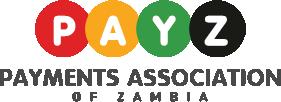
REPORT 2022


contents Session 1: Opening Session 4 Session 2: Opening Plenary And Panel Discussions 8 Session 3: A Fully Digital Zambia: How Prepared Are We? 9 Session 4: Exploring The E-Commerce Value Chain (The State Of Commerce, Customer Experience, Brand Pay ment, Trust And Digital Connectivity). 12 Session 5: Accelerating The Financial Payment System Through Innovation 13 Session 6: Bridging The Digital Divide Gap 14 Session 7: Consumer Banking: Financial Services Are Changing, Are Banks Transforming? 15 Session 8: Cyber Readiness In A Changing World: Cybercrimes And Risk Management: Institution Preparedness And The Role Of The Private Sector 16 Session 9: Skills And Home Grown Innovation For Sustainable Digital Transformation 19 Closing Ceremony 20 Conference Takeaways 20 ICT EXPO Report 2
The first ICT Expo and Fintech Festival took place from the 22 – 23 September 2022 at Taj Pamodzi Hotel in Lusaka, Zambia; which was hosted by the Information Communication Technology Association of Zambia (ICTAZ) and the Payments Association of Zambia (PAYZ) under the patronage of the Ministry of Technology and Science. The event attracted 297 from industry, and was opened by Hon. Felix Mutati, Minister of Technology and Science.






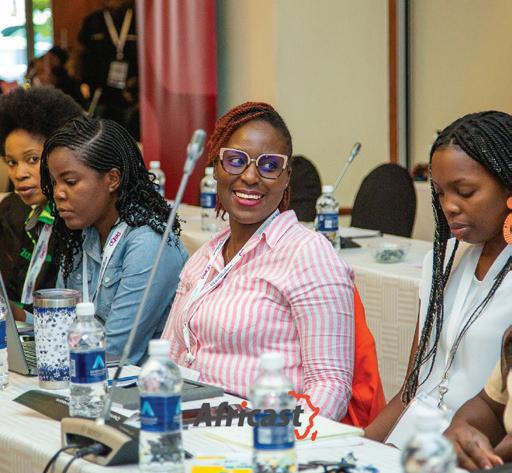







ICT EXPO Report 3
KEYNOTE
The use of technology to improve and automate financial services and procedures has increased in tandem with the number of Fintechs enhancing financial day-to-day operations. Organizational collaboration is key in fulfilling this year’s topic. The impact of technology on daily activities, as well as digital security, is pushing cyber security legislation. Zambia is gradually transitioning to digital finance, with each organization playing an important role in the country’s journey toward digital transformation, financial inclusion, and hope for Zambia’s digital economy. Hon. Mutati recognizes the value of a platform like this for exchanging ideas and exhibiting developments.

Mr. Clement Sinyangwe, the President of ICTAZ highlighted how the event recognises the evolution of the ICT sector and is aimed at capturing aspirations through the theme, “Enhancing Digital Security, Resilience and Skills for Sustainable Digital Transformation through innovation, collaboration & inclusion”. He explained how two years ago the whole world had come to a standstill due to the Covid-19 outbreak and that a lot of the day-to-day functions became impossible as people were forced indoors, which forced many services to go online and fortunately the ICT professionals were able to meet this challenge. He underscored how technology is an essential part of every aspect of our life and there being a need to provide an environment where the ordinary citizen is able to enjoy the full benefits of digital technology. He further mentioned how ICTAZ is particularly proud to be a part of the Fintech Festival because it demonstrates Zambia’s progress in bringing together the players around financial technology ranging from financial institutions, banks, mobile money operators (MNOs), software developers and development agencies. Mr. Sinyangwe then said that the issue of digital security is one of the main
During the opening, Mr. Roy Muyelo the Board Chair of PAYZ expressed his delight in being part of the ICT Expo and Fintech Festival, which was the first of its kind. He mentioned how the use of technology to enhance and automate financial services and procedures have risen exponentially in the past years and how this has been seen by the birth of so many Fintechs that have come up with innovative ideas, solutions and great initiatives which are helping businesses, companies and consumers to better manage financial day to day operations. Mr. Muyelo also stated how the fintech space has continued to dramatically grow and that there is tremendous need for resilience and skills, suitable for sustainable digital transformation through innovation, collaboration and inclusion, including the need to enhance digital and cyber security skills. He added that as an industry, Zambia is working tirelessly to be a leader in the digital field across Africa and how proud he is off the genius minds the country is producing. Mr. Muyelo also mentioned that he looked forward to a fantastic conference that would celebrate the leaders who continue to strive to push the industry forward.

DAY 01one THURSDAY, 22ND SEPTEMBER 2022
SESSION 1: OPENING SESSION ICT EXPO Report 4
drivers of the recently introduced Cyber Security and Cyber Crimes legislation and that the Ministry of Technology and Science is looking to revise this legislation to ensure the safety and security of citizens online. He also mentioned how ICTAZ is concerned by continued reports of cyber bullying, hacking and IT-related financial fraud, and added that he has learned from the ZICTA 2022 Mid-Year Sector Performance report, that ZICTA disconnected over two million SIM cards across the country in a bid to combat digital fraud. Mr. Sinyangwe ended his address by acknowledging New Dawn Administration’s commitment to equipping citizens with basic digital skills as outlined in the 8th National Development Plan and that ICTAZ pledges to support the Digital Economy agenda.
Mr. Isaac Holly Ogwal, UNCDF Country Director was delighted to note that the festival was an opportunity for International Guests to be exposed and learn from Zambia’s progressive journey and efforts around financial inclusion, digital finance, the role of Fintechs and the wider spectrum of growing a digitally connected economy. Mr. Ogwal said the UNCDF was encouraged to see the growth of the fintech ecosystem in Zambia, which is partly being demonstrated by the ability to successfully organise an event of this nature and magnitude, an event that brings together policy makers, regulators, the FinTechs, and ICT innovators of all kinds. He added that over the past years, The United Nations Capital Development Fund (UNCDF) had worked closely with both policymakers and the private sector in advancing Zambia’s digital and technology space, and as such, they recognised that each organisation represented, had a critical role to play in the country’s journey towards digital transformation. UNCDF continues to encourage policymakers and regulators to create an enabling environment that protects the integrity of our economy, Fintechs and inno vators to leap forward. He went on to say that the organisation would continue to work together with Fintechs and innovators who take on the necessary risks to transform how customers interact with products and services, as their aspiration is to witness investors operate in an environment that enables them access affordable and reliable capital needed by the country’s ever expanding start-up community. In conclusion, he attributed UNCDF as being one of the development partners, thus prepared to accelerate collaborations with each group of stakeholders to build Zambia’s digital economy.

The Director of Payment Systems at the Bank of Zambia, Ms. Miriam Tembo Kamuhuza, cited how a forum of this nature is important as it ensures that all stakeholders in the digital ecosystem share ideas and have the opportunity to showcase their innovations, especially since the country is focusing on moving towards a digital economy and increasing financial inclusion. She stated how Bank of Zambia’s strategic plan for 2020-2023, focuses on Financial Stability and Financial Inclusion. She further stated that under this strategic plan, the Bank has committed to undertake activities that will contribute to increasing formal financial inclusion by leveraging digital financial services. Ms. Kamuhuza further detailed that Zambia has experienced the many benefits that come with the use of Digital Financial Services (DFS) and that DFS have contributed significantly to increased financial inclusion. She narrated that the 2015 and 2020 FinScope Surveys on access to financial services showed that digital financial services has been the primary driver in the overall increase in levels of financial inclusion in Zambia. She added that financial inclusion increased by 10.1% to 69.4% in 2020 from 59.3% in 2015; and that consistent with this increase, formal financial inclusion rose to 61.3% in 2020 from 38.2% in 2015 and that this growth was mainly attributed to increased uptake of mobile money services which increased to 58.5% from 14.0% in 2015. Ms. Kamuhuza explained that these trends are supported by an enabling regulatory environment which targets onboarding the unbanked, mostly in rural areas to allow them to have access to formal financial services in a deliberate effort to accelerate financial inclusion.
She also stated that the most recent and key development is the implementation of the National Financial Switch (NFS), which has interconnected the various financial service providers in Zambia i.e. the commercial banks, non-bank financial institutions, payment service providers including mobile money and Fintechs. She added that the NFS facilitates processing of Automated Teller Machine, Point of Sale and instant mobile payments across the various financial service providers and that Instant mobile payments had gone live on the NFS in April 2020 which has enabled individuals to send money to another person in real time using their phone or other mobile devices across wallets, bank accounts, wallet to bank and bank to wallet instantly. She added that the

ICT EXPO Report 5
successful implementation of the NFS is a major milestone for the country and the region at large and that the NFS has increased convenience, access and usage of financial services; increased innovation and enhanced efficiency. Ms. Kamuhuza mentioned how the Bank has implemented the Regulatory Sandbox which allows for small scale live testing of innovative financial products and services and also that the ZICTA is working in collaboration with the Bank of Zambia to support the Rural Finance Expansion Programme (RUFEP), which was recently launched as a collaborative framework on the oversight of digital financial services. She noted that going forward the Bank with key stakeholders will continue to promote the use of DFS.

Ms. Engwase Mwale, the FSD Zambia CEO began by highlighting how there was no secret on how transactions through auto mated clearing houses, cards and mobile devices have expo nentially expanded within the nation. She went on to say that this proliferation has presented exceptional opportunities for Fintechs to deliver cutting-edge solutions such as microfinance products that are more consumer-centric and promote regular usage of digital platforms. She cautioned on how pertinent it was to understand that Fintechs are not subjected to the same regulations as banks, as they are more versatile in terms of digital capabilities that assures convenience, therefore Fintechs play a strategic role in morphing the economic and financial landscape. She informed the conference how FSD Zambia be lieves that there are no shortages of opportunities for Fintechs to contribute to the financial inclusion space. Having already witnessed how new technologies and a comprehensive range of related innovations, it was evident that financial services that support and enhance better socioeconomic outcomes are now within reach of all Zambians; males, females,young or elderly. She went on to mention how FSD had earmarked to achieve Zambia’s Financial Inclusion targets and urged policy makers, regulators and critical institutions to work together to help mitigate some of these challenges. She further called on all market players and smart investors to rise to the occasion and build Zambia’s Future “through Innovation, Collaboration and Inclusion”. She appealed to all financial players to find means of demonstrating mutually beneficial business propos als that encourage collaboration and investment.

ICT EXPO Report 6
Honourable Felix Mutati, MP, Minister of Technology and science informed that conference of the Zambian govern ment’s ambition to build an integrated, inclusive and a digitally powered Zambia by 2030. The Minister then high lighted on the five elements that needed to be worked on collectively, which included:
i. Creation of an enabling environment to facilitate Zam bia’s digital transformation agenda which will entail the development of a National Digital Strategy and In formation and Communication Technology (ICT) policy that will be launched in October, 2022. He stated that this development will help to ameliorate the disorderly and fragmentation that has hindered smooth coordi nation in the past. He pointed out that there is work in progress with regards to interoperation where empha sis is on machine talking to machines, with the desired outcome of a cashless Zambian society. He also cited that in the quest to borrow best practices from model digitally transformed economies, the Minister will lead a delegation for the purpose of benchmarking so that at the time of Innovation Africa Summit there will be a better story to share for Africa and particularly Zambia. He appealed for technical assistance from ICT experts on the issue of digital Identity (ID) that remains crucial to help eliminate fraud and duplication of efforts. He reminded the delegates that the digital space was theirs and as such they were expected to make con structive and substantive submissions to the develop ment of Cyber Security and Crimes pieces of legislation. The other critical piece of legislation that requires urgent attention is the cyber capital concerns that will adequately address issues of start-up capital, innova tion hubs, incubation, framework that will leverage the growth of ICT firms and as the new dawn government’s message is that they want to grow with the start-ups.
ii. The second action point, stated by the Minister, con sisted of the Three As (Availability, Accessibility and
Ms. Vivian Mbumwae who was representing women in tech nology recognized the government for the positive strides towards ensuring that Zambia is digitally transformed and further mentioned that it is up to the various stakeholders to ensure that the country becomes a leader in the region by collaborating in creating an enabling environment. She thanked the Sponsors for choosing to support the interna tional ICT Expo and Fintech Festival, as well as every individ ual, organisation, company and development partner for the role they played in not only supporting innovation in the ICT sector but also having made this event possible.
Affordability) of innovation which are the yardstick for the quality of services. This entails that the people of Zambia must be able to connect and transact across payment systems anytime and anywhere inconformity to the demands of three As.
iii. The third point echoed, the new dawn government’s desire to give the big responsibility of government revenue service bus to SMART Zambia Institute, whilst providing opportunities to the private innovative firms to operate government mini revenue service buses e.g. market levies, toll gate. He mentioned that the gov ernment is currently exploring methodical and robust approaches on how to construct software to actualize the aforementioned idea.
iv. The fourth action point is that of Public Private Part nership (PPP) through effective and efficient collabora tions. The minister mentioned that in order to achieve sanity, there is need for a common charter that focuses on customer satisfaction. This necessitates the need for regulatory institutions like the Bank of Zambia, ZICTA and security wings to collaboratively develop a common framework to avoid the prospect of confusing the general citizenry.
v. The Honourable Minister also motioned that ICTAZ has a very big role to play in the digital economy transfor mation agenda and that the new dawn government wants to give them “teeth”. The Minister emphasised on the need for a well regulated ICT professional as is the case with other professions like Medial Association of Zambia and Law association of Zambia.
The Minister concluded his remarks by stating that with what he had witnessed at the inaugural ICT expo and Fintech festival, there is hope for Zambia’s digital economy transformation.

ICT EXPO Report 7
SESSION 2: OPENING PLENARY AND PANEL DISCUSSIONS
The opening plenary was moderated by Mr. Komba Malukutila, MD, MTN Fintech who was joined by Mr. Akash, Risk and compliance (MTN), Ms. T. Malemba, Head of products, (responsible for product evolution and all solutions seen), Ms. Chikondi Mwanza, Business Strategy and Mr. K. Chilongoshi the CIO. This panel reflected on the progress and potential of Fintech in Zambia.

KEYNOTE
Change acceptance is required for digital advance ment. Fintech relies on banks as collaborative partners for their operations because they are not rivals but allies in influencing financial and digital evolution.
Mr. Malukutila stated that 10 years from now, services including the banking system will not be what it was 10 years ago. He mentioned that the banks have realised that traditional banking is not what is going to push Zambia to the 69% of financial inclu sion that the director alluded to earlier. What is needed is not the sharpest of species, or the most intelligent, but the ones that are most responsive to change. He explained how the journey of making Zambia digital has started, as evidenced by the evolution of access mechanisms like Zoona, then mobile money like MTN, Airtel, Zamtel and Kazang – 543. He also mentioned that 90% of the distribution has been done in urban areas and the work in pro gress is rural Zambia so that everyone is financially included. He also stated how in the western world everybody is moving to a bank since they have a credit score which in turn gives them access to financial services; however the local SMEs have no access to funding because there is no data on them. He fur ther elaborated that as a fintech, they rely on the collaborative partnership with the banks for their operations.
Mr. Malukutila mentioned the government has stated that there must be a switch for all financial players to inter-operate; this saw the birth of the National Financial Switch (NFS) which links 19 banks, MNOs and fintechs in one platform. He further said that from an access layer, they started off with USSD, but now there are web interfaces where all the players have apps which you can interface. He added that with the cross border remitters, individuals can send money across borders as well as from one phone to another. Mr. Malukutila also highlighted some of MTNs success areas which included:
10,000,000 active wallets as at 2021
36 registered and licensed PSGs
In 2022 alone - 8,030,000 transactions accounting to 16,000,000,000 in mobile money transactions There are still a number of Zambians financially excluded.
During the ensuing open forum, Ms. Chikondi Mwanza added on what was stated in the opening ceremony by Director Kamuhuza, by stating that the NFS had made it possible to send Money from an MTN wallet to Airtel, a Bank or make


payments within seconds.
Ms. Malemba added to the discussion by saying that Banks and Fintechs are not in competition but rather in collaboration, as the drive for financial inclusion is bigger than any one entity. Fintechs have been evolving, and are not disruptive in a manner that they are innovative.


Mr. Akash commented that the innovations being made also give rise to more oppor tunities to cyber criminals. In trying to curb cyber threats and reduce the risks, guid ance is being sought from ISO 27,000 and ISO 27,0001 just to name a few. He added that, there is also a lot of commu nication that has been going on with all interested parties
in the cyber space to find a lasting solution to cybercrime.
Mr. Chilongoshi explained that Security is a journey and because threats are evolving, we can only say we are ready when we have the readiness to evolve as an industry. He also added that the number of threats that come with providing services are high and unavoidable, and so operators must be ready, and urged industry players, law enforcement agents to evolve in order to fight cyber crimes.
Ms. Kamuhuza detailed how customer personal data can not be shared as it is private. However, she added that customer data is shared with cooperating partners only for purposes of loan disburse ments where credit history is required. Ms. Mwanza added that there is something being worked on, to ensure that some data can be shared with partners across various networks, without infringing on the rights of the customers, and without breaking any rules or laws.
ICT EXPO Report 8
SESSION 3: A FULLY DIGITAL ZAMBIA: HOW PREPARED ARE WE?
The opening plenary was moderated by Mr. Komba Malukutila, MD, MTN Fintech who was joined by Mr. Akash, Risk and compliance (MTN), Ms. T. Malemba, Head of products, (responsible for product evolution and all solutions seen), Ms. Chikondi Mwanza, Business Strategy and Mr. K. Chilongoshi the CIO. This panel reflected on the progress and potential of Fintech in Zambia.
Zambia has put in place remarkable legislation and regulations that rank among the best in Africa, but there is still room for improvement in terms of awareness, updating the school curriculum to promote digitalization, and improving infrastructure utilization to support digital transformation.

Mr. Milner Makuni kicked off the discussions and explained that a scientific method was used to determine/know where Zambia is in terms of digitalization, with some of these inquir ies being done by several bodies. He added that the results showed that Zambia is at 45%, meaning it is in the formative stage. He went on to inform the conference that Zambia is doing well in terms of policy and regulations; and that Zambia is actually topping most African countries. He also mentioned that Zambia has the infrastructure, however it is not good enough and that there is a need to move from just having enough infrastructure, to usage. The supply side shows that a lot has been done, but the consumer side shows that demand is still low. Mr. Makuni said that they are carrying out a holistic approach and are involving all stakeholders including academ ia. He added that the education curriculum needs to upscale and rescale; and that digitalization does not mean for instance that teachers will lose jobs, but there is a need for continuous learning, relook at the issue of training students to wait for government jobs. The future lies in improving the economy and promotion of cutting edge tech where several jobs will be created.
Mr. Sonny Zulu in response to questions pointed out 3 things:
Firstly, lack of awareness; there is technology that is avail able that people are not aware of.
Secondly, upscaling and reality - IT specialists meet and discuss great ideas but decision makers, CEOs, managers etc are not aware, as such they will not approve any sug gestions or plans.
Lastly, Policies: Zambia needs to come to a time where di rectives are made in certain requirements in order to pro mote digitalization. For example, a directive to say beyond a certain amount, cash payments cannot be made. This will promote digitalization. There is a need for a digital tool to deduct toll fees and fees for insurance for example. Toll stations are a waste of time, a waste of resources etc. People waste a lot of productive time paying manually at toll gates. That is time which can be channelled towards productivity.
Mr. Makuni added that the future of work is changing and that most companies are tech companies. Most companies are
shifting in terms of jobs. The world economy is going digital and there is no need for Zambia to remain behind the global trend.
Mr. Sonny Zulu added that one of the challenges affecting dig italization is the language barrier. Most of the information on the enablers (gadgets such as phones) and on the mobile ap plications is in the English language. These applications usually have translators, but most people are not aware of this, so they end up not being able to perform basic mobile transactions, due to the language barrier.
Mr. Percy Chinyama explained how Smart Zambia is respon sible for driving digitalization and that the e-government division is a creation of an act of parliament. He added that the Government almost got paralyzed in the wake of covid-19, which brought a lot of problems in Zambia, but it also brought a lot of collaboration among key players. He further cited that there are over 515 public bodies and that there is a policy which demands all these bodies to be automated, and so far over 200 of these bodies have been automated. These services will be accessed through the ZAMPOST.
Dr. Mayombo Nyirenda said that there is a need for curriculum to be inclusive of the problems that need to be solved and there being a need for research and ensuring that the curric ulum is in line with local needs. He noted that the important parts include producing the knowledge and being able to man age the knowledge produced. In terms of formal education, he added that there is no problem as the curriculum is inclusive of computer science and applied information technology. The problem is for the informal education sector.
KEYNOTE ICT EXPO Report 9
Picture Gallery






ICT EXPO Report 10








ICT EXPO Report 11
SESSION 4: EXPLORING THE E-COMMERCE VALUE CHAIN (THE STATE OF COMMERCE, CUSTOMER EXPERIENCE, BRAND PAYMENT, TRUST AND DIGITAL CONNECTIVITY).

The session was moderated by Ms. Mwangala Sipumo, Communication and Public Relations Manager,E-Africa Expo with the panel consisting of Dr. Munyaradzi Gwatidzo CEO, Astro Technology, Zimbabwe who talked about building trust and digital connectivity and Mr. Aston Njovu, ZeePay Zambia, who talked about using e-commerce. The trio explored the e-commerce value chain, the state of commerce, customer experience, brand payment, trust and digital connectivity in Zambia and beyond.
KEYNOTE
e-commerce acceleration has been carried out in rural areas by offering education and awareness on the subject. Pointed out how the Covid-19 pandemic saw a rise in the use of e-commerce services like Ulendo Eats and mobile money and eWallet services to achieve daily tasks especially during the lock down achieving a milestone that would have taken a lot more years. Need for players in the ecosystem to pave way for such services.
Ms. Sipumo highlighted how eAfricaExpo has endeavoured to accelerate e-commerce in Zambia by offering tailor made solutions for rural areas by educating the communities about the relevance of e-commerce, making services and internet available to the end-users. She added that they have partnered with the government through the Ministry of Science Technolo gy and Smart Zambia as a deliberate move to create an ecosys tem that brings different players under one roof to bridge the gap of ignorance.
Mr. Njovu disclosed that Zambia’s tele-density was over 100% and when it came to e-commerce, the country was moving in the right direction with FinTech. And it was sad to acknowledge that Covid-19 helped in achieving what would have taken 10 years in just a period of 2 years (2019-2021). During this period we saw the rise of Ulendo Eats and mobile money and e-wallet services to pay for school fees, water bills and electricity bills. There’s quite a significant proportion of transactions that are


facilitated via mobile money services and e-wallet platform which implied that as a country we are on the right trajectory. Mr. Njovu made known of issues regarding security, how Bank of Zambia monitors and regulates the players in the ecosystem sector. This is through the provision of a number of Acts such as Information technology Act, Cyber security Act, Data protec tion Act, just to mention a few.
Dr. Munyaradzi acknowledged that even though there was technology in digital connectivity, the issue was with enablers and how these players in the ecosystem need to enable the technologies like ulendo, e-agriculture, e-commerce, etc.




ICT EXPO Report 12
SESSION 5: ACCELERATING THE FINANCIAL PAYMENT SYSTEM THROUGH INNOVATION

This session was moderated by Mr. Mulenga Chanda from Bank of China and a panel consisting of Gilbert Lungu, the Country Manager at Cellulant; Mr. Leonard Mwanza the President of the Bankers Association of Zambia (BAZ) and Mr. Christopher Nanchengwa from ZECHL.

KEYNOTE
“When we get to a point where someone selling oranges cannot accept cash but e-wallet or mobile money, then we will be able to appreciate the benefits of both banks and Fintechs”. The Zambia National Financial Service is a huge platform that connects all financial players in Zambia, monitors and certifies them to ensure financial transaction security. As we have previously embraced online payments, the country has to work together, coordinate, and de velop effective payment platforms. Banks have improved their service delivery, and cybercrime is being dealt with zeal by more trained personnel in technological systems. There is a need to increase internet connectivity in rural regions while continuing to use USSD for banking transactions.
Mr. Leonard Mwanza revealed how there have been discus sions surrounding the fear regarding who is taking the lead in the banking systems over the years. He elaborated the country needed to be looking at how to work together, the need to col laborate and promote efficient payment platforms, and high lighted that the country has also accepted online payments. He further amplified the next steps in going digital, which included having more sensitization and distribution especially in the rural areas. He said, “When we get to a point where someone selling oranges cannot accept cash but e-wallet or mobile money, then we will be able to appreciate the benefits of both banks and Fintechs”. In response to questions that ensued, he gave an example of how banks had improved over the years especially with the cheque maturing process and how it would take 7 days to mature but not anymore. He also highlighted how the introduction of controlling both the client and the bank helps to monitor all transactions either through SMS or email notifications. Previously this kind of convenience was not available for the client. The other convenient service that the banks have introduced is making payment after working hours possible. Responding to issues with cybercrime he said that we have about 40% skilled staff in cyber security. We need to raise the skill levels. The technology systems are available but the skilled staff are few.
Mr. Gilbert Lungu said that going digital was a very interesting digital journey. He mentioned that, in Zambia, it started with mobile money services which facilitated payments and the innovations have grown as a result of the demand from people wanting more services.
Mr. Christopher Nanchengwa said that the Zambia National Financial Service is a big platform that links all financial players within Zambia. “With regard to digital growth, back then cheque had a hectic process to be cleared but we launched a service that enables end-users to process cheque faster,” he said. He explained that in the year 2019, they launched a service that stopped transactions using VISA swiping machines from super markets and other shops to be approved from outside Zambia. So now, all VISA transactions are approved within Zambia. They also launched mobile money like MTN, Airtel, and Kazang which are connected at the NFS. He added that one thing important to them was security of these transactions and to achieve this, they ensure that before the implementation, the financial play
ers get certified by NFS. In response to questions on where we are in rural areas, Mr. Nanchengwa said that It is a bit challeng ing to digitalize the rural areas, but at least now USSD is being used because it does not require internet as long as one has phone, they are able to make the transactions.
ICT EXPO Report 13
SESSION 6: BRIDGING THE DIGITAL DIVIDE GAP

Ms. Cornelia Ehlers stated that GIZ has been engaging and encouraging financial institutions to develop tailor made financial solutions targeted at promoting financial inclusion among rural farming communities and that GIZ has further created platforms that make it possible for financial literacy and capacity building for rural communities to better under stand the benefits of digital financial services. She also said that the immediate outputs for the aforementioned activities have been business working relationships between farmers and financial institutions and ultimately farmers have access to more finance services and enjoy the use of convenient digital payment systems. In response to questions regarding the interventions GIZ has put in place to ensure the digital divide gap is fully addressed, she explained that GIZ has partnered with the Ministry of Agriculture with a belief that no sector can operate successfully without integration and that GIZ has been conducting literacy training in rural communities as well as trainings on data protection.

Mr. Chilufya Musosha explained that the existence of E – Ngo ma is premised on ensuring everyone is reached, regardless of their location through partnering with financial institutions to deliver home grown market solutions with emphasis on reaching out to communities in remote parts of the country. He added that E-Ngoma has also made great strides in the area of partnership with network providers by improving internet service coverage in remote areas so that citizens in those parts of the country have access to affordable internet services. In response to questions on what digital transformation inter ventions E-Ngoma is working on, Mr. Chilufya explained that E -Ngoma is working on the notion of data driven decision making which include issues around dispelling myths contrib uting to low uptake of vaccines and voter apathy among young people.
Mr. Adam Norikane mentioned that the core focus of USAID

is to reduce rural poverty in the rural communities of Zambia. However, the lack of internet connectivity is the major limi tation affecting most rural communities. He added that the problem for most rural communities is poor access to internet connectivity, therefore financial and digital literacy programs are of utmost importance and that to conquer this challenges, USAID has partnered with ABSA to give out soft loans to rural farmers and have a number of projects running targeting the health, education and agriculture sectors. The employed ap proach is that of development of viable partnerships with the public and private sectors to aggressively address the identi fied constraints.
Mr. Greg Saili said that UNDP has, like other development agencies, developed partnerships with other stakeholders to effectively package and deliver interventions on health, educa tion and agriculture sectors, and that the objective is to deliver strengthened systems and improve service delivery evolving around optimal utilisation of digital space. He added that arising from the challenges of low digital inclusion, especially the issue of personal identification, the UN family has distrib uted biometric kits to the Government of Zambia. In the health sector, UNDP is working with the Government of the Republic of Zambia particularly the Department of National registration and Ministry of Health to promote birth registration in Zambian communities. The target is to ensure that no one is left behind and it’s believed that this activity is prerequisite as we all work towards digitalization of personal identities for citizens.
In response to questions on what are some of the digital solutions that UNDP offer to communities, Mr. Saili said that within the operational framework of UNDP there is a laboratory that specialises at development of real-time solutions related to agriculture, education and health; and the strong focus is on integrated solutions with respect to rural connectivity and transparency matters.

DAY 02two FRIDAY, 23RD SEPTEMBER 2022
The session was moderated by Ms. Mali Kambundu, a representative from UNCDF; who was joined by Mr. Adam Nori kane from USAID, Ms. Cornelia Ehlers from GIZ, Mr. Greg Saili from UNDP and Mr. Chilufya Musosha e-Ngoma.
Ms. Cornelia Ehlers
Mr. Chilufya Musosha
Mr. Adam Norikane
Mr. Greg Saili
ICT EXPO Report 14
SESSION 7: CONSUMER BANKING: FINANCIAL SERVICES ARE CHANGING, ARE BANKS TRANSFORMING?
KEYNOTE

Banks should respond to developing disruptive technologies by assisting fintechs in distributing their goods on the market, as banks are often more inflexible, whilst fintechs are more adaptable to change, and the two institutions are not in conflict, contrary to popular belief.


Ms. Charity Mwanza kicked off the discussions by stating that the landscape has been changing over the years driven by a number of factors that includes; consumer preferences, tech nology development and regulatory constraints that dictates the need to do things differently. With the emerging changes, comes the issue of factors that players in the ecosystem need to consider to remain competitive.
Ms. Yaza Kara added by saying that currently about 60 – 70 % of the banks in Zambia are now digitally transformed. The motivation to digitally transform is driven by the desire to meet customer needs. From the perspective of regulation, banks have been encouraged to embrace digital transformation whilst developing trustworthy relationships with clients. She added that Banks leverage on the trust that they are able to develop with their clients.

Mr. Nash Kabunda also agreed that Banks are transforming as there have been so many changes that ZANACO has undergone with regards to retail banking since 1969. He further added that currently the account balance service is available on mobile applications platforms and mobile banking service and trans actions can be conducted at convenient locations like shop ping malls and markets through agency banking.
Mr. John Samaras mentioned that there is a misconception that Fintechs are in competition with Banks. What is desired is to identify areas of strengths for either parties and facilitate the development of a complementary relationship. Traditionally, banks are known to be highly institutionalised, adhere to strict and longer regulatory processes, whereas Fintech are able to adapt to challenges and provide market solutions to fill exist ing gaps. He added that Banks should respond to the emerging disruptive technology by supporting fintechs to distribute their products on market. In response to questions on the cost for mobile money transactions being high relative to cash transactions and bank charges, Mr. John Samaras said that the fact is the mobile transaction ecosystem is growing in Zambia and there is an expectation that with more competition there will be a downward trend with regards to the cost of mobile transaction.
This Session was moderated by Ms. Charity Mwanza, the Chief Executive Officer at Digital Paygo. Ms. Mwanza was joined by Ms. Yaza Kara from the Partnerships and agile project office at Stanbic Bank; Mr. John Samara, Chairman of Sampay and Mr. Nash Kabunda, the Head of Digital Channel Delivery ZANACO.
ICT EXPO Report 15
SESSION 8: CYBER READINESS IN A CHANGING WORLD: CYBERCRIMES AND RISK MANAGEMENT: INSTITUTION PREPAREDNESS AND THE ROLE OF THE PRIVATE SECTOR
KEYNOTE
The protection of computer systems and networks against information disclosure, theft, or damage to their hard ware, software, or electronic data, as well as disruption or misdirection of the services they offer, is known as com puter security, cybersecurity, or information technology security.
digital assets. However, the key word at this ICT expo was digital transformation. Then from the fintechs point of view it is either you choose to go digital or go out of business and of very importance is the fact that everyone needs to know how to protect their digital data starting from the house wife up to an organisation level. Mr. Mpofu alluded to some forms of cyber crime as ransomware and that is on top ten across Zambia and the globe at large, also at individual level, there are suspicious messages that come through on mobile phones or phone calls to lure mobile money customers into sending money to unscrupulous people.



Mr. Brian Chungu stated that Cyber security involves integrity of data, confidentiality and availability. Integrity in the cyber se curity context implies the information you are getting is exact as with what is provided. He also added that confidentiality is concerned with authorised access to information and Availabil ity deals provision and timeliness in the provision of a service to the citizens.
Ms. Jessie Himunyanga mentioned that Cyber security is how you ensure protection of data devices and data contained in there against unintended users and cyber attack. For example, a house wife receiving messages on social media like Facebook, WhatsApp and many others and then the way she handles or perceive such massages e.g. Some will require to open using a password and some without a password therefore, by deciding to open or ignore such massages is what is considered to be Cyber security conscious.

Mr. Elias Mpofu added that Cyber security is the protection of
Mr. Brian Chungu hinted that it is without doubt that there is no institution that could be classified as 100% Cyber security ready, because vulnerability is still there in almost every organ isation and that security improvement is a continuous process in that today you can work to reduce a particular vulnerability and tomorrow another one emerges.
This session was moderated by Ms. Janet Zulu from INQ, with her panel consisting of Mr. Brian Chungu from StarLabs, Mr. Elias Mpofu from Digital Safe, Mr. Chris Mwale from Trade & Development Bank and Ms. Jessie Himunyanga from Digital PayGo.
ICT EXPO Report 16








EXHIBITIONS ICT EXPO Report 17
SESSION 9: SKILLS AND HOME GROWN INNOVATION FOR SUSTAINABLE DIGITAL TRANSFORMATION
This session was moderated by Mr. Alick Siankumo from ZCOM Systems, with the panel consisting of Dr. Greg Nsofu, the ICT Director at Bank of Zambia; Mr. Lukonga Lindunda from Bongohive; Mr. Andrew Ngulube from INFRATEL; Mr. Kelvin Haule from Fibrecom and Mr. Ali Kinstong Mwila, a Cybersecurity consultant.
erately advocate for more financial support towards develop ment of missing skills set in the industry.
Indigenous talent has been able to handle ICT infra structure to such a degree that there has been no serious technical decline in the six years, and some of the Infratel facilities have even been approved by global ICT authority. Furthermore, the corporations have made significant investments in digital solu tions, and local expertise manages the digital infra structure and provides world-class services. Zambia possesses the necessary expertise, and there is a need to prioritize homegrown solutions by identify ing talent and providing them with opportunities to develop solutions to recognized challenges.
Mr. Andrew Ngulube explained that Infratel is part of Industrial Development Corporation (IDC), an investment arm of the gov ernment and is 100% owned by IDC. Infratel owns and operates ICT infrastructure with two data centres in Lusaka and one on the copperbelt. He added that Infratel is a premier and first cloud service provider and has installed about 1,252 communi cation towers across the country; and that for the six years that Infratel has run, all the data centres are operated and man aged by indigenous homegrown talents. He added that there are times that they get external technical support, but largely the indigenous talent has been able to manage ICT infrastruc ture to an extent that in the six years they haven’t experienced major technical downturn and even global ICT authorities have certified some of the Infratel facilities. Additionally, Infratel has heavily invested in digital solutions and local talents operate the digital infrastructure and provide world class services.
Dr. Greg Nsofu added that we have not reached a level where we can comfortably state that we have the right numbers and skills set for the ICT sector and appealed to everyone to delib


Mr. Ali Kingston Mwila contributed that he believes that Zam bia has the right skills and that there is need to give priority for home grown solutions through identification of talent and grant them an opportunity to develop solutions to identified problems.
Mr. Kelvin Haule explained that fibrecom had managed to build a 100G world class network across the whole country with

KEYNOTE
ICT EXPO Report 18
gateways to neighbouring countries and recently received col leagues from Botswana and South Africa who were exploring the prospect of utilising fibrecom networks to deliver services to their clients. He added that this team was impressed with the capacity of fibrecom network and attested that they cur rently don’t have clients who are operating on 100G network. In terms of resilience, he said that fibrecom has an extensive network that makes it possible to re-route transmission in case of traffic breakdown and that there is a lot of human capacity development in the areas of wireless broadband and currently three of IT team members are attending training in Malaysia.
In response to the question on the message to the future gen eration with regards to development and harnessing of home grown solutions, Mr. Kelvin Haule said that the idea is to devel op local innovative solutions that will help eliminate licensing costs incurred to external firms like European dynamics.

they provide space for them to create their own content and learn from each other and provide opportunities that are not offered in mainstream education facilities. This entails provid ing resources to help young people actualize their potential. Mr. Lindunda also said that they are actively involved in talent search and are working in partnership with Universities, private sector and relevant government wings where the message is about complementary efforts to deliver real-time market solutions.



Mr. Likonga Lindunda also shared that Eleven years ago, Bon gohive was started with business partners and over the years had been working with great minds to build viable market solutions. He added that looking at the challenge of harnessing and developing Home grown solutions, Bongohive is working tirelessly to develop solutions that will change the world and that they host many training sessions for young people where

Dr. Greg Nsofu highlighted that the general skills are adequate, but there are gaps with regards to specialized skills for the country to be in tandem with the current state of technological advancement. There are currently organisations like ZPPA that are looking for specific skills that are not locally available. “We therefore need to identify talent and harness it to the level desired by the industry,” he said. He further added that there is more to be done at the level of early development of ICT skills at primary and second.



ICT EXPO Report 19
KEYNOTE
The Hosts thanked each and every participant as well as the Minister of Technology and Science, Hon Felix Mutati for their support and attendance.
Mr. Sinyangwe appreciated each and every person for their active participation as well as the support received from indi vidual members, institutions and corporate members and in particular the Payment Association of Zambia.
Director of Programmes: Thanked the Board chairperson and invited the Representative from PAYZ for Vote of Thanks
Mr. Robert Phiri thanked everyone for attending the inaugural ICT Expo and Fintech Expo and also thanked the Ministry of Science and Technology, in particular the Honourable Minister Felix Mutati for the support.
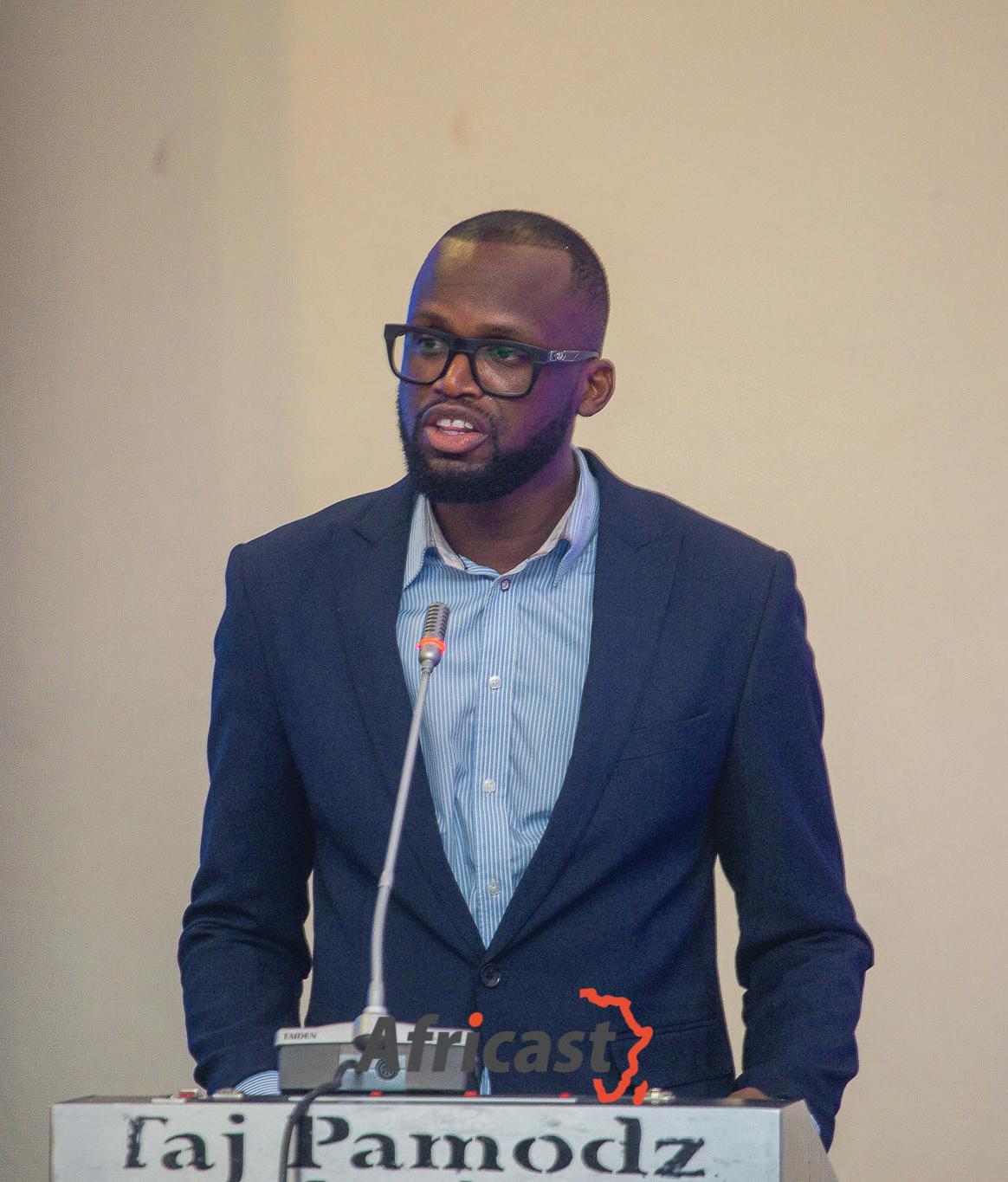
CONFERENCE TAKEAWAYS
1. The academic curriculum needs to be reviewed to include current mat ters. People are being trained, but the things they are being taught are not up to date with where the world is in terms of digitalization
2. There is need for a governing body / regulatory authority to regulate players in the digital space. Medical practitioners have HPCZ, but com puter experts have no governing body where they affiliate them selves
3. The ICT Expo and Fintech Festival should be an annual event going forward.
4. There is need to have strategic
plans of improving citizen aware ness of products and applications that are available
5. More needs to be done to improve cyber security so that citizens can be able to make transactions, without any doubts or fear of being defrauded of their hard-earned money
6. There is need to reduce as much as possible, transactions that require people to go to a physical bank. Most transactions should be done by the customers on their own, either within the comfort of their homes, or via the Fintechs which should be as close as possible to them.
7. There is need to take Fintechs to the rural areas, most of the work in Lusaka and other big towns has almost already been done
8. There is need to provide tailor made solutions for the rural areas on how best to use internet for e-commerce.
9. Development and implementation of appropriate policy to facilitate creation of an enabling environment for digital economic transformation.
10. A public private partnerships strate gy to facilitate development of well packaged, integrated and efficient digital economic services.
CLOSING CEREMONY
Director of Programmes: Thanked panellist and invited the President ICTAZ, Mr. Clement Sinyangwe and the CEO of PAYZ, Robert Phiri, to give the closing remarks.
ICT EXPO Report 20











REGISTER HERE “Enhancing Digital Security, Resilience and Skills for Sustainable Digital Transformation through innovation, collaboration & inclusion. “ 22ND-23RD SEPTEMBER 2022 08AM-5PM TAJ PAMODZI HOTEL, LUSAKA SAVE THE DATE ICT EXPO Report 21









ICT EXPO Report 22


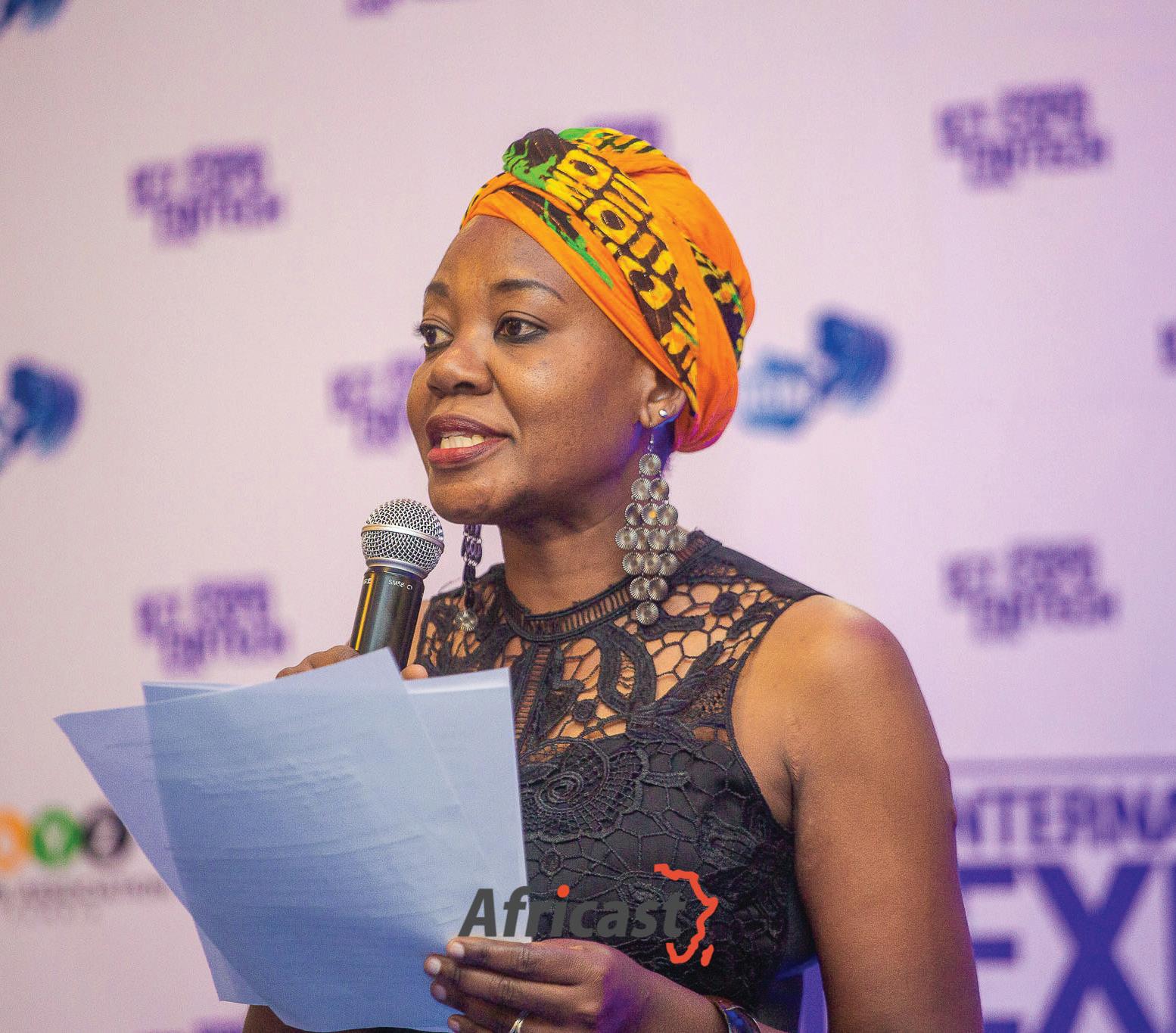


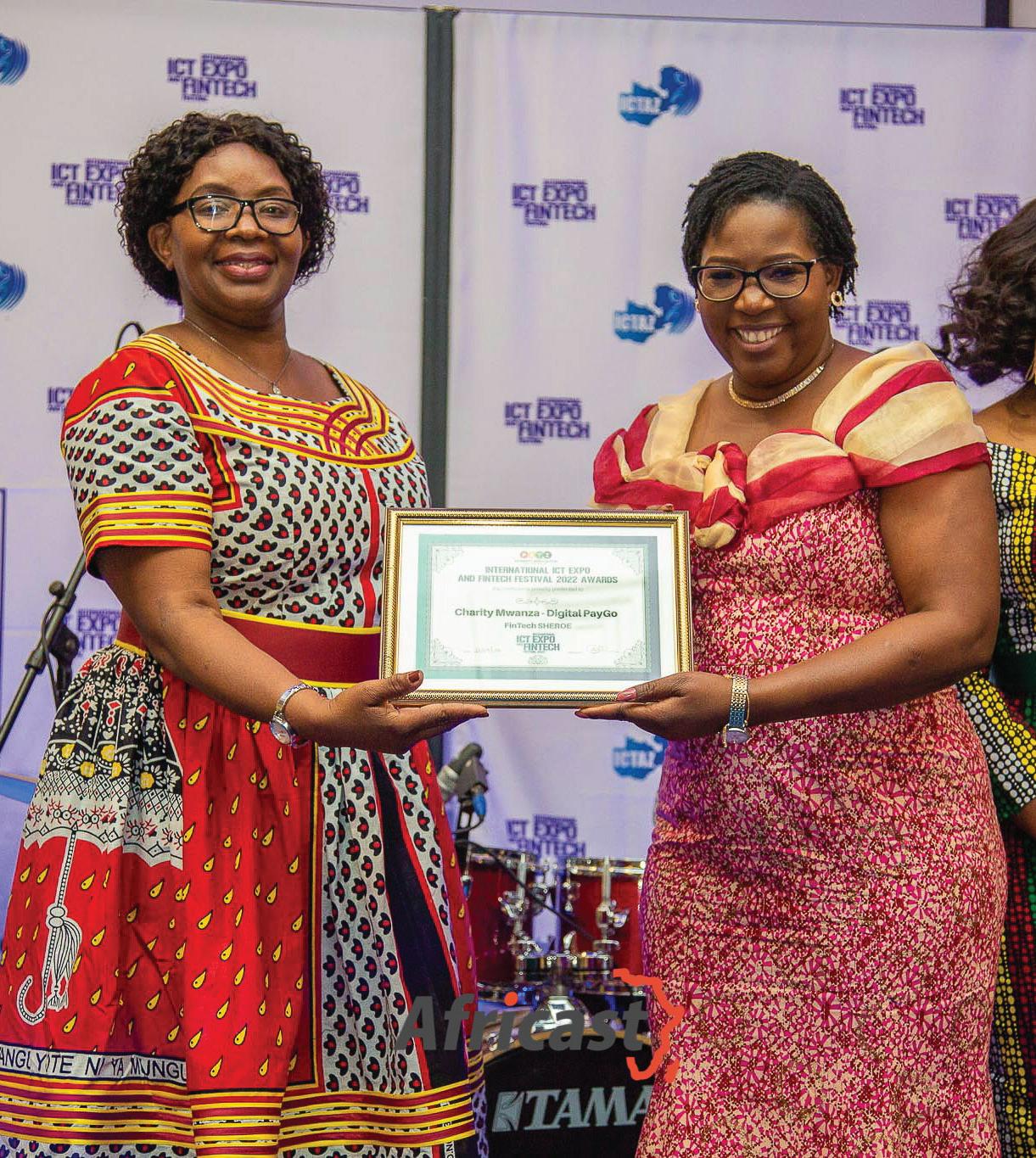


ICT EXPO Report 23




ICT EXPO Report 24
















































































































